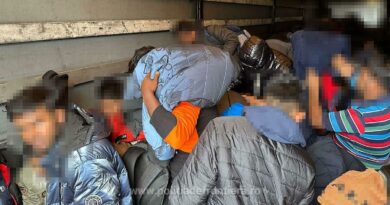Anti-trafficking body urges Slovenia to better identify victims of human trafficking
In a new report the Council of Europe’s anti-trafficking group GRETA calls on the Slovenian authorities to improve trafficking victims’ access to justice and effective remedies, and to strengthen the identification of victims of trafficking for the purpose of labour exploitation and amongst asylum seekers. This third report on Slovenia’s implementation of the Convention on Action against Trafficking in Human Beings focuses on access to justice and effective remedies for victims of trafficking in human beings. It also assesses developments since the publication of GRETA’s second report on Slovenia in 2018.
GRETA acknowledges that progress has been made in some areas, in particular the establishment of the Anti-Trafficking Service within the Ministry of the Interior, which supports the National Anti-Trafficking Co-ordinator and ensures inter-ministerial cooperation, as well as amendments to the Criminal Code and the Aliens Act. The publication of multi-lingual materials to inform victims of trafficking of their rights and detailed guidelines for labour inspectors on victim identification are also welcome developments.
However, the report notes that no trafficking victim has received compensation from the perpetrators through criminal or civil proceedings, nor from the State under the Crime Victims Compensation Act. GRETA therefore urges the Slovenian authorities to enable victims of trafficking to effectively exercise their right to compensation, by ensuring their access to information and legal aid to claim compensation. GRETA also calls on the authorities to review the eligibility criteria for state compensation with a view to making it available in practice to victims of trafficking.




